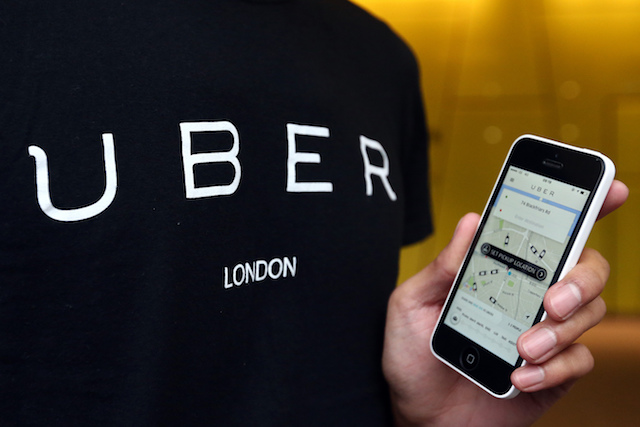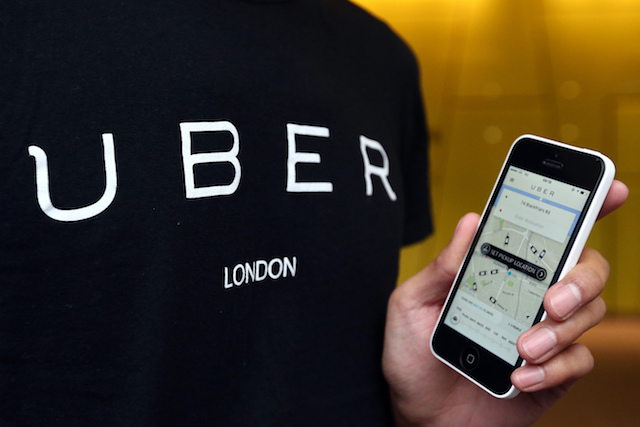Uber announces “safety” cap on UK driver hours

Uber has confirmed it will cap the amount of hours drivers on its platform in the UK can be logged in to accept trips. After ten hours the new policy will require drivers take an uninterrupted six hour break before they can log back into the app again.
Uber says the new UK driver hours policy will come into force next week.
A spokesman told us it’s making the change to “enhance driver and passenger safety” — though in truth the company has faced rising political pressure on safety issues and working conditions for many months now, including facing a grilling in October from a parliamentary committee that’s running an enquiry into the gig economy.
Safety was also one of the issues cited by London’s transport regulator for withdrawing Uber’s license to operate in the city in September.
In a statement on the new driver hours policy, Andrew Byrne, Uber’s head of policy, told us: “While drivers only spend an average of 30 hours a week logged into our app, we want to do our part to ensure they don’t drive tired. That’s why we’ve been sending drivers regular reminders to take rest breaks and why we’re now bringing in these new limits.”
“We continue to listen to feedback and plan to make other changes and improvements over the coming months,” he added.
An Uber spokesman declined to answer when we asked whether the company will be bringing in driver caps elsewhere in Europe.
Back in October Uber told UK MPs running an enquiry into gig economy working conditions that it was working on a mechanism to cap the amount of time a driver could be logged into the app over a rolling 24 hour period. At the time it said it was testing a cap of between 12 and 10 hours.
During the committee session UK parliamentarians pressed Uber on its attitude to safety — raising concerns about the long hours being clocked up by drivers on the platform, including citing stories of drivers sleeping in their cars to work for longer.
Uber told the committee that the average number of hours worked per week by Uber drivers across the UK is “just under 30″. It also said a quarter of Uber drivers work fewer than 10 hours per week; another quarter works more than 40 hours; and “about 25 per cent” work more than 40 hours per week.
Though it has since corrected these figures — saying that the median number of hours is 30; and that 16 per cent of drivers in the UK are logged into the app for fewer than 10 hours per week; and just under a third (31%) are logged in to the app for more than 40 hours per week.
The committee asked Uber to send breakdowns for percentages of drivers working more than 50, 60, 70 and 80 hours per week — and Uber initially told it “fewer than 6% of drivers spend more than 60 hours logged into the app per week”.
Again, Uber has since corrected the figures it provided — and in a letter to the committee dated December 13 it now states that “fewer than 8% of drivers spend more than 60 hours logged in to the app per week”.
It also said that 2.6% of Uber drivers are logged in for more than 70 hours per week, and 0.8% are logged in for more than 80 hours per week.
Given that the company claims to have around 50,000 drivers on its UK platform that suggests up to 4,000 Uber driver are routinely logged into the app for more than 60 hours per week. Of those, 1,300 are logged in for more than 70 hours per week, and 400 are logged in for more than 80 hours per week.
Though in the letter Uber claims that “an hour logged into the Uber app is not the same as an hour of work” — suggesting for example that “drivers can log in while on a break or doing other things”.
From next week, those 4,000 UK Uber drivers will face a hard cap of ten hours on the number of consecutive hours they can be logged in to ply their driving trade on the platform.
But the fact it’s taken legal challenges and public pressure from parliamentarians to push Uber to install a safety cap on driver working hours hardly reflects well on the company’s attitude to driver and passenger safety.
Rising legal and political pressure is clearly having an impact on how Uber does business in Europe though. In November the company lost its first appeal against a 2016 UK employment tribunal verdict that had judged a group of Uber drivers to be workers, rather than self-employed contractors — as the company had argued.
Last April, in the wake of the October 2016 tribunal decision, it announced it was launching a subsidized personal injury and illness insurance product for drivers in the UK — responding to rising legal liabilities related to working conditions on its platform.
Uber has said that if it has to fund workers’ rights for all ~50k UK Uber drivers it would cost the business “tens of millions” of pounds. (Though, in December, it announced that from January it would fund a free personal accident and sickness insurance package for all couriers on its UberEats business, across Europe.)
The UK government has been actively eyeing how gig economy platforms mesh with current employment — commissioning an independent review into the issue which reported last summer. Though it’s still not clear how exactly it might move forward with legislative changes.
Responding to Uber’s new driver hours policy, the IWGB union, which campaigns for gig economy workers rights in the UK, welcomed the cap but argued that it fails to address the root cause of driver fatigue — which it says is a result of low rates of pay (it claims UK Uber drivers need to work for 34 hours a week just to break even).
“If Uber forces drivers to work less without paying more it is just going depress hourly earnings even further below the minimum wage and push drivers to the brink. The solution is simple: Uber has to abide by what two separate tribunals have ruled and pay its drivers at least the minimum wage and holiday pay,” said IWGB UPHD branch chair James Farrar in a statement.
“[Transport for London] and licensing authorities around the country have also contributed to the problem of driver fatigue and exploitation by over supplying the market with licenses and failing to make provision to protect drivers. Once again, drivers are being made to pay for the consequences of corporate greed and regulatory failure.”
Published at Tue, 16 Jan 2018 16:08:11 +0000



